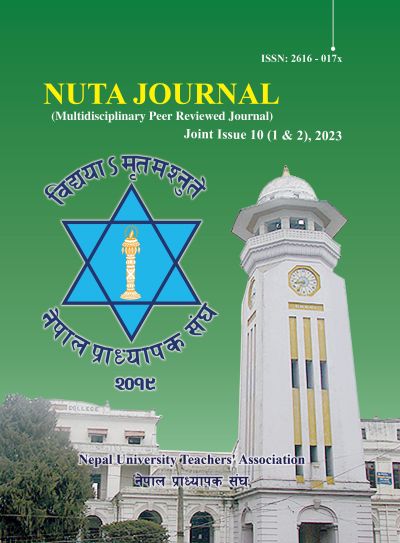Implication of Local Government Institutional Capacity Self-Assessment System at Municipal Governance
DOI:
https://doi.org/10.3126/nutaj.v10i1-2.62973Keywords:
Federal system, local goverment, governance, self-assessment, LISAAbstract
Local governments have a key role to play in ensuring that public services are provided close to the people under the federal governance system. Therefore, the success of federalism depends on effectiveness of public service delivery function. The constitution has provisioned legislative, executive, and judicial powers to local levels, Province and federation based on the principles of cooperation, coexistence, and coordination. In this context, local government institutional self-assessment (LISA) framework has been used by local government in Nepal after implementation of federal democratic republican constitution 2015.main objectives is to effectiveness of improve the quality. Acts and regulations related to these methods. The Practice of LISA by improving the Its the web-based LISA system has been introduced as an innovative instrument to track the performance of local governments in Nepal after the governance system was restructured from unitary to federal with significant power and resources to local level. The process of LISA creating capacity begins with a capacity evaluation. It presents a precise picture of the organization's strengths and weaknesses. The output of this approach unambiguously calls for the capacity-building initiatives needed and helps foster ownership to boost self-esteem. More specifically, LISA's primary goal is to investigate current practices in 10 local governance-related areas.
Downloads
Downloads
Published
How to Cite
Issue
Section
License
© Copyright by NUTA JOURNAL
All Rights Reserved. No part of this Journal may be reproduced in any form or by any electronic or mechanical means, including information storage and retrieval system without prior permission in writing from the publisher, except by a reviewer who may quote brief extracts while reviewing.

